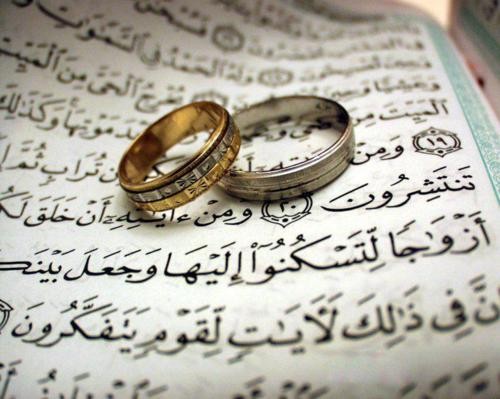Islam does not permit sexual relations, even preliminary acts of physical love, outside of marriage. The Holy Prophet Muhammad, may peace and blessings be upon him, has said:
“Marriage is my precept and my practice. Those who do not follow my practice are not of me.” (Bukhari)
He has also said:
“When a man has married, he has completed one half of his religion.” (Baihaqi)
The Holy Qur’an has provided the means for maintaining chastity. It directs believing men and women to restrain themselves from looking at each other so openly as to be sexually excited by them. It further directs them to restrain their ears from listening to flirtatious and tempting talk and to avoid occasions which might lead to temptation. Fasting, dieting and exercise also help to control passions and maintain chastity.
Allah has enjoined marriage for the believers for three basic reasons:-
- To enable a man and a woman to live together and experience love and happiness, within Islamic law.
- To produce children, and provide a stable and righteous environment for their upbringing.
- To provide a legal union which safeguards society from moral and social degradation.
Arranged marriages
One of the key factors in building a good marriage is, of course, the selection of the right person with whom to spend the rest of your life. The Holy Prophet Muhammad, may peace and blessings be upon him, has guided us by saying:
“Usually one marries a woman for four reasons: For her wealth, for her family, for her beauty or for her righteousness.Give preference to the one who is righteous. May you remain humble.” (Bukhari)
Piety or moral goodness is the most important quality to be sought in a potential mate. If you and your partner have righteousness, you will approach all aspects of marriage in a God-fearing way and will try to make a success of things. Other factors to be taken into consideration in mate selection are family background, age, education and interests. Prayer is also an essential tool for deciding on a prospective mate and Muslims always seek Allah’s guidance in making any important decisions.
With these injunctions in mind, marriages amongst Muslims are usually arranged, with the consent of both the boy and the girl. Parents or guardians arrange the marriages of their children once they reach a suitable age and level of maturity.
The reason why it is best for the parents or guardians to try to find a mate for their children is because they usually know their child’s character the best, and will try to choose a mate who is the most compatible. When a man and a woman are dating, there is the danger that the passions of the moment may overwhelm their reason and judgement. They may marry because of physical attraction only and find incompatibilities in each other when it is too late. Physical attraction or “being in love” can wear off quickly in the face of other problems and so lead to dissatisfaction and eventual separation. On the other hand, in an arranged marriage, physical attraction plays a minor role and couples enter marriage as a partnership where both have to make personal sacrifices and have to work at pleasing their mate. The gradual build up of respect, trust and affection usually produces a bond between husband and wife which is stronger and more enduring than one based on physical attraction alone.
No marriage can be arranged and entered into without the consent of both man and woman. However, the woman needs a guardian or representative for the arrangement. The purpose is to safeguard her rights and to maintain her modesty. Islam allows both the man and the woman to see and talk to each other before the marriage, with a chaperon present at these meetings.
THE ISLAMIC MARRIAGE CEREMONY
There are a number of requirements for a marriage to be legal. First of all, both the man and woman must willingly consent to the marriage before it can take place. Secondly, the marriage must be made public, with two witnesses from each side present at the ceremony. Islam does not allow secret marriages. Thirdly, the groom and the bride’s guardian must be present at the Nikah (marriage ceremony). The bride may or may not be present. If the groom is not present, then there may be a representative from his side, but he must have written consent.
Dower
The dower (mehr) is a mandatory gift from the husband to the wife. This sum should be proportionate to the husband’s means, i.e. 6-12 month’s income. The dower amount is announced at the time of the marriage ceremony. It can be given all at once or in instalments. Once given, it is solely the property of the wife and she may do with it as she pleases. The amount should be agreeable to both parties.
Nikah
The Nikah is the actual marriage ceremony which is performed by anyone, but it is better for it to be done by someone in authority. The Nikah is publicly announced, witnessed and agreed and then it becomes legal.
Rukhstana
The Rukhstana is when the groom takes the bride home. This can happen on the same day as the Nikah, the following day, week, month, even years after the Nikah.
Walima
The Walima is when the marriage has been consummated. A reception is given by the groom after the marriage to celebrate the consummation of the marriage. If the marriage has not been consummated and it is dissolved, then the groom has to pay only a half of the dower.

